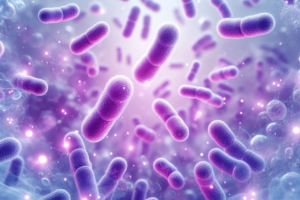Brain development is a critical process that occurs throughout childhood and into early adulthood. During this time, the brain is developing rapidly, and experiences and environmental factors can shape its growth and structure.
There are several key factors that can influence a child’s brain development, including:
- Nutrition: A healthy and balanced diet is essential for brain development. Proper nutrition, including adequate intake of vitamins and minerals, helps to support brain growth and function.
- Stimulation: Children need a variety of experiences and opportunities to learn and explore the world around them. Stimulation from engaging activities, such as reading, playing, and socializing, can help to build new neural connections in the brain.
- Sleep: Adequate sleep is important for brain development, as it allows the brain to consolidate memories and process information.
- Exercise: Regular physical activity can help to promote brain development and growth, as it increases blood flow and oxygenation to the brain.
- Positive relationships: Children need supportive and positive relationships with caregivers and peers to promote healthy brain development.
It is important to note that each child’s brain develops at its own pace, and there is a wide range of normal variation. However, if parents or caregivers have concerns about a child’s development, they should consult with a healthcare provider for further evaluation and guidance.
DHA (docosahexaenoic acid) is an omega-3 fatty acid that is important for brain development and function. DHA is commonly found in fish and fish oil supplements. When DHA is exposed to air or begins to oxidize, it can produce a fishy odor. This odor is particularly noticeable in fish oil supplements that have not been properly processed or stored. It is found in high concentrations in the brain and is essential for the growth and development of the central nervous system (CNS), particularly during early childhood. Here are some of the key reasons why DHA is important:
- Brain development: DHA is a major structural component of the brain, and it plays a critical role in the growth and development of the central nervous system, particularly during the first two years of life.
- Cognitive function: DHA is important for cognitive function, including memory, attention, and problem-solving skills. Studies have shown that higher levels of DHA in the blood are associated with better cognitive performance in children and adults.
- Vision development: DHA is also important for vision development, particularly in the retina of the eye. It is essential for the normal development of visual acuity and can help to reduce the risk of certain eye disorders.
- Behavioral health: Some studies have suggested that DHA may have a positive impact on behavior and mood, particularly in children with Attention Deficit Hyperactivity Disorder (ADHD) and other behavioral disorders.
Studies have shown that DHA plays a key role in promoting cognitive and behavioral development in children. It has been linked to improvements in attention, memory, problem-solving, and language skills. In addition, DHA has been associated with a reduced risk of ADHD, autism, and dyslexia.
DHA is found naturally in fatty fish such as salmon, mackerel, and tuna, as well as in certain algae-based supplements. Many infant formulas are now fortified with DHA to support healthy brain development in babies.
A child’s brain development and cognition will be completely changed by Blumen Biovitals’ best nutraceutical product, “I-DHA,” a phytopharmaceutical company and one of the nutraceutical manufacturer in Mumbai, India. The nutraceutical, which provides 100 mg of DHA per serving, is an allergy-safe alternative to fish oils that have smells and promotes improved absorption. The dosage for their oromelt sachet formulation is seven drops per day from one sachet.







